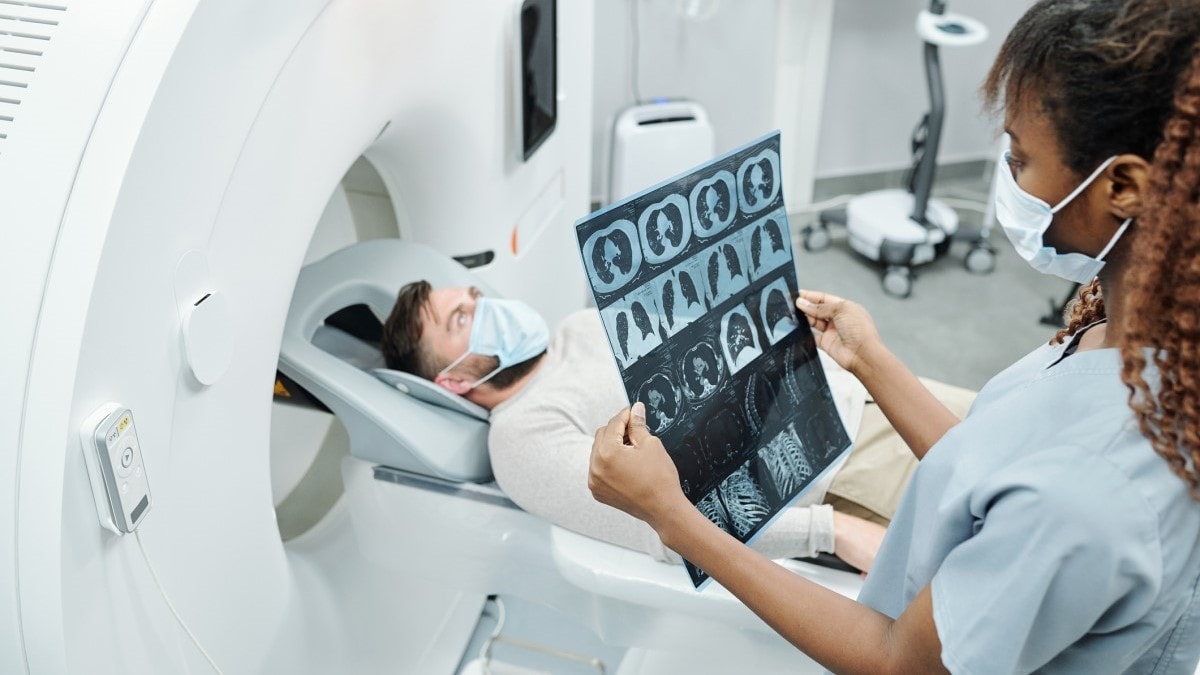 a CT scan" />
a CT scan" /> a CT scan" />
a CT scan" />
Screening means testing for a disease when there are no symptoms or history of that disease. Doctors recommend a screening test to find a disease early, when treatment may work better.
The only recommended screening test for lung cancer is low-dose computed tomography (also called a low-dose CT scan, or LDCT). During an LDCT scan, you lie on a table and an x-ray machine uses a low dose (amount) of radiation to make detailed images of your lungs. The scan only takes a few minutes and is not painful.
The US Preventive Services Task Force (Task Force) recommends yearly lung cancer screening with LDCT for people who:
A pack-year is smoking an average of one pack of cigarettes per day for one year. For example, a person could have a 20 pack-year history by smoking one pack a day for 20 years or two packs a day for 10 years.
Lung cancer screening has at least three risks:
That is why lung cancer screening is recommended only for adults who are at high risk for developing the disease because of their smoking history and age, and who do not have a health problem that substantially limits their life expectancy or their ability or willingness to have lung surgery, if needed.
If you are thinking about getting screened, talk to your doctor. If lung cancer screening is right for you, your doctor can refer you to a high-quality screening facility.
Some people with a smoking history may blame themselves or feel that others blame them for being at risk of getting cancer. Lung cancer can be caused by many different things. If you do get lung cancer, lung cancer screening can help find it early, when treatment may work better.
When you get lung cancer screening, your doctor may ask you if you smoke, ask if you're ready to quit smoking, and tell you about proven steps that can help you quit. No matter how long you have used tobacco, quitting can reduce your risk for lung cancer and other chronic diseases.
Many people who use tobacco become addicted to nicotine, a drug found naturally in tobacco. This can make it hard to quit. Most people who use tobacco try to quit several times before they succeed. For more information about quitting tobacco use, visit smokefree.gov.
The Task Force recommends that yearly lung cancer screening stop when the person being screened:
Most insurance plans and Medicare help pay for recommended lung cancer screening tests. If the screening test finds something abnormal, you may need more tests. These follow-up tests may have a cost such as a co-pay or deductible. Check with your insurance plan to find out what benefits are covered for lung cancer screening. For more information about Medicare coverage, visit www.medicare.gov or call 1-800-MEDICARE (1-800-633-4227). TTY users should call 1 (877) 486-2048.